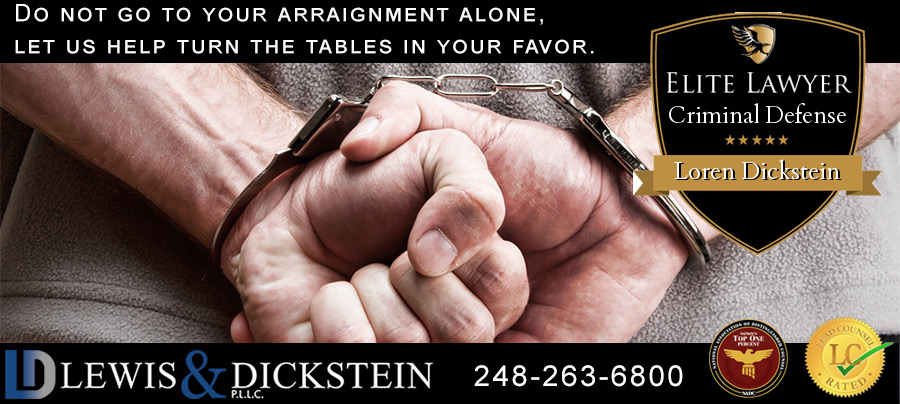All Criminal Cases Start with an Arraignment
The arraignment is a critical stage in the criminal justice process. If things do not go well at the arraignment, a defendant might be stuck in jail throughout the court proceedings.

Do I need an attorney at an arraignment?
As you might imagine, the bail amount and type of bond are the most crucial issues in a defendant’s life. The amount and type of bond will determine whether the defendant regains their freedom on that date or remains in jail pending a trial or resolution of their case. It is essential to have a privately retained attorney present at your arraignment to get a low or personal bond, to demonstrate that you take the charges seriously, to protect and assert vital constitutional rights, and to lay the groundwork for any potential defenses.
At the arraignment, the judge must consider whether the defendant will voluntarily return to court. Having a privately retained attorney will show the judge that the defendant is serious about confronting the case. No one would hire an attorney if they planned to flee from the court’s jurisdiction and not return to court. When a judge sees a retained attorney at a defendant’s side, it will lead the judge to set a lower bond.
An experienced attorney has the training and ability to speak to the court about why a bond should be personal or low. A great attorney at arraignment will know precisely what to say to the court and how to say it. Without a lawyer, a defendant may say something that hurts their best interests relative to the bond—having a trained attorney make the argument will influence the judge to set a personal or lower bond.
At the arraignment, an attorney will have input into scheduling the first court date. An attorney will request a first court date with enough lead time to obtain the police report, audio/video evidence, expert and forensic reports, and any other evidence the prosecution possesses. The lawyer must have time to prepare for the next court date. Having the time to strategize and prepare will put the attorney in a strong position when discussing the case with a prosecutor. A court-appointed lawyer never has the opportunity to get records before the first court date following the arraignment.
How can I help my lawyer obtain a low bond?
You must tell your attorney important information about you and your past. Important information for arraignment includes:
- education,
- professional licenses or certifications,
- employment,
- family,
- history of drug/alcohol treatment or education,
- prior record,
- history of appearing or failing to appear in court,
- pending warrants,
- traffic record,
- pending court cases,
- ownership of real estate,
- ties to the community,
- history of community service and volunteerism, and more.
Tell your lawyer if something might help the judge or magistrate form a positive image of you.
If you know of something in your past that might cause a problem at arraignment, your lawyer must also be aware of this information. Do not rely on your lawyer to ask you for every conceivable piece of information; if you know of something helpful, talk to your attorney about it.

A personal bond does not require any cash deposit with the court.
A defendant charged with a felony or misdemeanor must be arraigned on a warrant at the beginning of a criminal case. The arraigning magistrate or judge will tell the accused what they are charged with and then set a bond. A bond can require a deposit of money for the defendant to stay out of jail. The 8th Amendment to the Constitution states that “excessive bail ought not be required.” The defendant must be present in court or be “virtually” present through a live video stream. It is critical to have an experienced attorney at arraignment.
The arraignment has several purposes: Notifying defendants of the charges against them, allowing them to enter a plea, providing the judge the option to set a bond, and allowing defendants to request a court-appointed attorney if they cannot afford to hire a privately retained attorney.
An Attorney Has the Best Chance at Getting a Personal Bond
Concerning bonds, a judge has several options. A judge may set a “personal bond” with a dollar amount that will be forfeited if the defendant fails to return to court. A personal bond does not require a payment of money. A personal bond is a promise to come back to court. Alternatively, the court may set a bond that requires the defendant or someone on their behalf to deposit an amount of money with the court. The court may require a “cash” bond, in which case the defendant must pay the entire bond amount to the court. The third option is a “10%” bond. In such a case, if the bond is $5,000.00, 10%, someone must deposit at least $500.00 with the court. The last type of bond that the judge might set is a “surety” bond, whereby a licensed bondsman posts the bond and usually charges the defendant a 10% fee.
An Experienced Attorney at Arraignment Will Assist the Defendant with Entering a Plea
The judge will then ask the defendant how they plead. The choices are Guilty, Not Guilty, No Contest, or the defendant “stand mute,” in which case the judge will enter a Not Guilty plea on the defendant’s behalf. Generally, the defendant will want to “stand mute” and let the judge enter a not guilty plea on their behalf. The defendant can change their plea at a later date. There is virtually never a good reason to plead guilty at the arraignment. A good lawyer can help get the charges reduced, dismissed, or secure an agreement for a lenient sentence. If a defendant pleads guilty at the arraignment, they lose their right to seek reduced charges or a sentence agreement.

Is a personal bond guaranteed if you have an attorney at arraignment?
Lawyers cannot ethically or legally offer a guarantee or promise regarding an arraignment or the outcome of a case. Although preparation and planning help ensure the lowest possible bond, there is no guarantee of a personal recognizance bond. Make sure you provide your attorney with information showing how you are reliable, responsible, and connected to the community. If you have information or documentation that will help your lawyer demonstrate that you are a contributing member of the community, law-abiding, and likely to appear in court as ordered, that would be most helpful. Bringing one or more friends or family members to court will help show the judge that you have established connections to the community, and people will vouch for your character. Because a personal bond is not guaranteed, it is always best to ensure someone is available to your lawyer if a cash bond is required. If you are taken into custody and transported to jail, the bond should be posted at the jail, not the court, if possible.
Should I bring money to the arraignment?
You should bring cash to the arraignment or someone with access to funds if necessary to post your bond. Most courts accept credit cards; however, others will only accept cash. Call the court before your arraignment to determine what payment methods are accepted. Even under ideal conditions and with the most skilled lawyer, a judge might require you to post a bond. It is better to have the funds, instead of getting caught in a situation where you cannot post necessary funds with the court. Ask your lawyer for guidance if you are unsure how much to bring to court. Never go to court and assume that a personal bond is guaranteed.
Know Your Pretrial Release Order and All Bond Conditions
After arraignment, the judge will sign an order setting bond terms and conditions. Ensure you do not leave the courthouse without a copy of that order. Make sure you are familiar with the bond order and all of your obligations, including but not limited to drug/alcohol testing, restrictions on travel, curfew, geographic restrictions, and no-contact provisions. If you violate your bond conditions, you might face a bond violation. If the judge finds that you’ve violated the bond, they could increase your bond amount, remand you into custody, forfeit any posted bond, and more.

Having the Best Criminal Defense Attorney at Arraignment is Critical
As explained above, there are many important reasons to have a retained attorney at a defendant’s side during an arraignment. Aside from the “nuts and bolts” reasons discussed above, from a purely human perspective, it is also essential to have a retained attorney present at arraignment because, by their very presence, they will naturally lend a sense of comfort and peace of mind to a person who truly needs it. Having an attorney at arraignment can determine if you remain free on bond.
Call LEWIS & DICKSTEIN, P.L.L.C. today for a free consultation. Do not go to your arraignment alone. Give us a chance to help you understand how having us by your side can help turn the tables in your favor.
Call us today at (248) 263-6800 for a free consultation or complete an online Request for Assistance Form. We will contact you promptly and find a way to help you.












